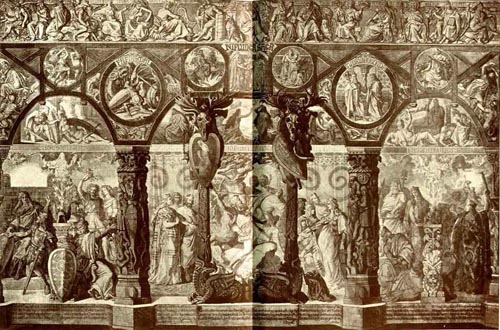
Curious, 12th or 13th Century tale of the death of Siegfried and the subsequent revenge by Kriemhild upon the treacherous Hagen. Filled with a sort of cartoonish, Hollywood style of violence wherein the protagonists prevail (for a time) against seemingly insurmountable odds, introducing and slightly fleshing out characters such as Brunhild and Rudiger, it served as my introduction to the medieval German myths and legends. Now, to be truthful, while it's a classic I wasn't overwhelmed by it, the translation I read (A. T. Hatto) sought to preserve the narrative at the expense of the poetry, and not speaking medieval German I'm not in a position to comment on whether he did a good or a bad job, I suspect the former. But it was redeemed in the numerous appendices and footnotes, which clarified and interpreted certain passages and generally raised my estimitation of it.
Now the introduction is often, in my view, something to be avoided, it frequently presumes you are familiar with the plot and outcome of the story and makes free with spilling events and offering criticisms and interpretations before you've had a chance to appraise it yourself. But in this instance the introduction and notes were saved until the end, where they served the proper function of clarifying the text and comparing the outline with the various antecedent poems and stories that preceded it. Which was a good thing.
Or is it? While I don't like "spoilers", it should be noted that it's original audience was very familiar with the plot, and the telling of the story was simply a different "interpretation" or fleshing out/tying together of various of the legends surrounding Siegfried and the Burgundians. So in this sense, to have the same appreciation as it's audience, forewarned might have been forearmed....
Other observations? Curious as to the events that actually led to the creation of the myths of Siegried and Kriemhild, curious as to how the audience reconciles the 2 halves, the first in which Siegfried is the hero treacherously murdered, Kriemhild the cruelly widowed Queen, then the second half where she weds King Etzel and becomes a vengeful sort of demon who sacrifices all in her quest for revenge, Hagen's role switches from that of traitor to that of hero... But then these become questions of our culture and time, and my absence of sympathy is largely due to my lack of understanding and context.
And the treasure of the Nibelung's, Kriemhild's dowry from Siegfried sunken into the Rhine...





















